Furuno Enters Second Stage Of Fully Autonomous Ship Project MEGURI2040
At a recent seminar, Furuno presented an overview of the second stage of MEGURI2040, their initiative for advancing their Fully Autonomous Ship Project. Their testing includes autonomous vessels loaded with Furuno electronics, including the FAR3000 Chart Radar, FMD3200 ECDIS, FA170 AIS, GP170 GPS Navigator, and FE800 IMO Echo Sounder, all routed through an Action Planning Unit (APU) to process navigation actions in response to input sensor data.
Nishnomiya City, Japan - Advancing their Fully Autonomous Ship Project MEGURI2040, Furuno Electric Company will participate in the Joint Technological Development Program for the Demonstration of Fully Autonomous Ships (DFFAS) administered by the Nippon Foundation. Furuno electronics aboard the autonomous vessels include the FAR3000 Chart Radar, FMD3200 ECDIS, FA170 AIS, GP170 GPS Navigator, and FE800 IMO Echo Sounder, all routed through an Action Planning Unit (APU) to process navigation actions in response to input sensor data.
At a recent seminar, the project's initiatives and an overview of the second stage of MEGURI2040 were presented, with four goals:
- Demonstration test - Complete a live demonstration of ship-land systems that simulate future coastal shipping operations by fully autonomous ships, utilizing two Fleet Operation Centers and four different types of ships: a full-package container ship capable of fully autonomous navigation, an existing container ship, a Ro-Ro cargo ship, and a partially-autonomous remote island route ship.
-
Standardization of developed technologies - Refine the technology developed in the first stage by establishing them as international standards, strengthening Japan's maritime industry an leading all international competition in fully autonomous ship technology.
-
Reinforce the development process - Reinforce development processes established in the first stage by upgrading and refining simulation technology. - Social Implementation - Establish the certification schema required to commercialize the process, including autonomous navigation and land-based monitoring.
In this second stage of MEGURI2040, Furuno continues developing autonomous navigation technologies, such as situational awareness of the ship's surroundings, automatic collision avoidance, and the refinement of onshore support centers. The research will be carried out aboard three types of ships: A newly built full-package container ship with a fully autonomous navigation function, an existing container ship, and a remote island route ship.
Furuno is committed to utilizing its significant achievements in technology development to establish international and domestic rules for fully autonomous ships. Beyond the technological, its aim includes facets such as developing the human resource requirements and training methods needed to accommodate these new working styles. Furuno will also study deregulation, insurance and freight rate benefits, and other ways to ensure the continuous commercial use of fully autonomous ships.
DFFAS, with Furuno, other participating companies, and their domestic and international partners, will continue to work toward the commercialization of fully autonomous ships by 2025.
***


 NavNet MFDs
NavNet MFDs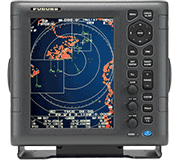 Radars
Radars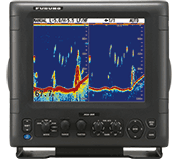 Fish Finders & Transducers
Fish Finders & Transducers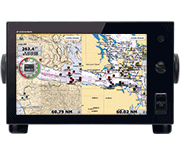 GPS & Chart Plotters
GPS & Chart Plotters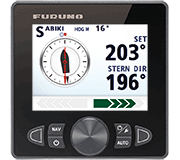 Autopilots
Autopilots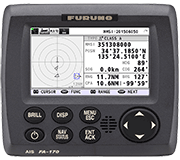 Navigation
Navigation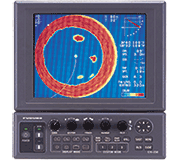 Sonars
Sonars Commercial
Commercial